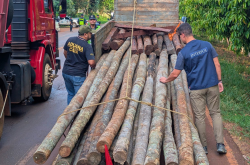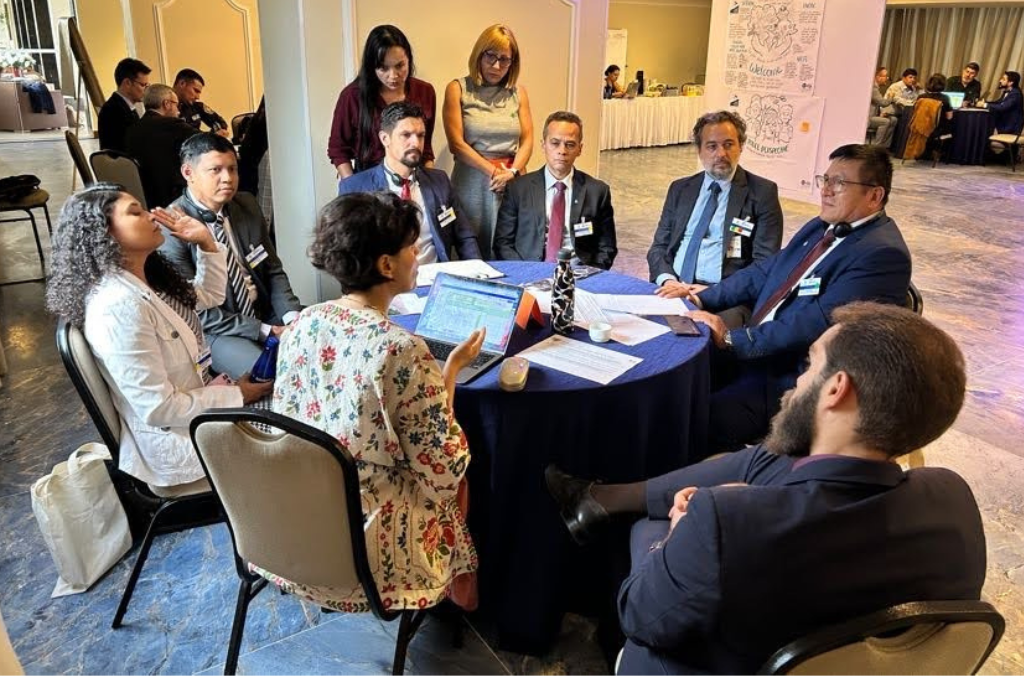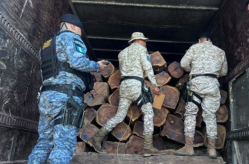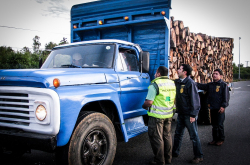Timeframe: 2023 to 2025
Budget: EUR 6.3 million
Donor: Norway's International Climate and Forest Initiative (NICFI)
The situation
The illegal timber trade poses a serious threat, generating nearly half the illicit proceeds of all environmental crime globally. Economic and social implications of this crime include deforestation, habitat loss, species extinction and global warming. From a law enforcement perspective, forestry crime is a broad term used to cover a range of illegal activities from the harvesting of forest resources to their transport and sale, and the use of proceeds in a range of other related offences.
In general, there are four key forms of forestry crime:
- Illegal exploitation of high-value endangered wood species;
- Illegal logging in protected areas, on indigenous lands, or outside of concession boundaries;
- Laundering of illegally harvested wood through plantations and front companies;
- Corporate financial crimes and document fraud to conceal illegal activity and tax evasion.
Project aims
Project LEAP’s overall objective is to support law enforcement agencies’ joint efforts to tackle illegal deforestation and associated crimes.
Launched in 2018, LEAP. has assisted member countries to more effectively detect, investigate and prevent forestry crime. LEAP has also promoted collaboration between law enforcement agencies across the globe, building a solid foundation for sustainability and efficiency.
LEAP is jointly implemented by INTERPOL and the United Nations Office on Drugs and Crime (UNODC). Under Phase II, this global programme is helping countries to combat forestry crime through associated crime areas such as money laundering, tax evasion, corruption and drug trafficking. This is made possible through:
- Promoting information exchange and analysis to identify forestry crimes, perpetrators and deforestation hotspots;
- Supporting effective operational responses to combat forestry crimes and reduce deforestation.
- Enhancing cross-sector collaboration involving police agencies, customs, Financial Intelligence Units, forestry agencies, prosecutors, and civil society;
- Fostering global awareness of the impact of illegal deforestation and best practices for combating forestry crime.
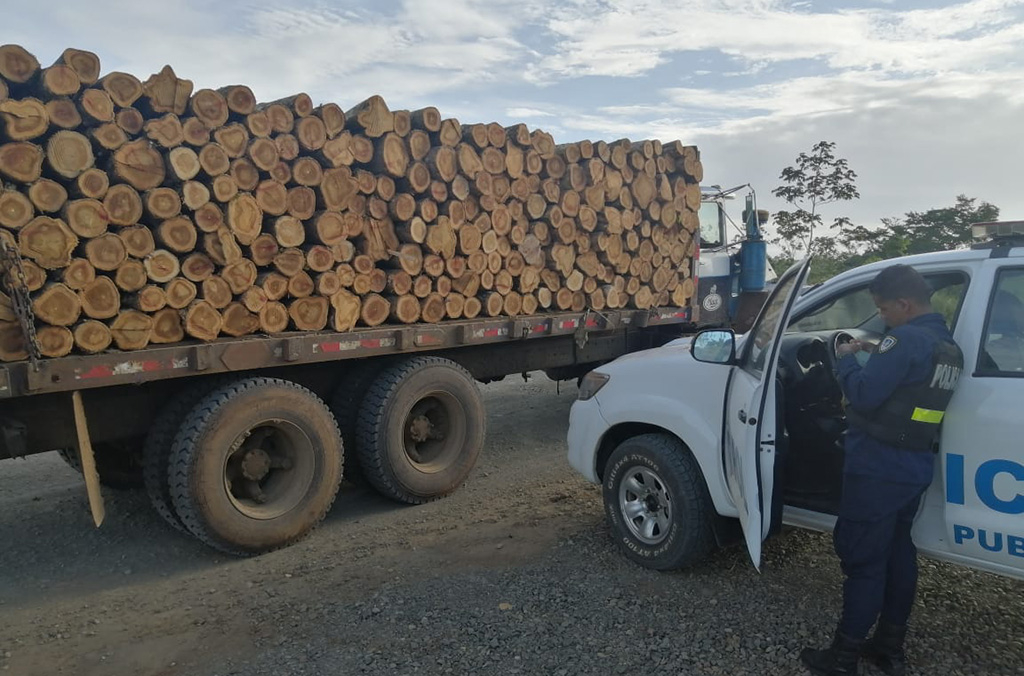
Project activities
- Conducting criminal intelligence analysis: helps to identify links between companies and individuals suspected of illicit activities. By providing access to satellite imagery, we are also able to detect deforestation hotspots and support countries in the detection of high-value targets and relevant cross-border modus operandi;
- Deploying Operational Support Teams (OST) and organizing Regional Investigative and Analytical case meetings (RIACM): this helps tackle transnational crimes and foster intelligence sharing across borders. We provide technical and forensic assistance to ongoing investigations.
- Coordinating intelligence-led operations: we support law enforcement operations and provide specialized expertise to combat illegal logging and illicit timber trafficking to detect and disrupt global criminal networks along the entire timber supply chain;
- Organizing training sessions and Mentoring Programme: our expert-driven mentoring sessions help tackle forestry crime and build the capacity of multi-agency task forces.
Countries involved:
- Asia Pacific: Cambodia, Indonesia, Laos PDR, Malaysia, Papua New Guinea, Solomon Islands, Thailand, Vietnam.
- Latin America: Bolivia, Brazil, Colombia, Ecuador, Suriname, Panama, Paraguay, Peru.
Project updates
March 2025
Advancing Regional Cooperation on Forestry Crimes — Brasília, Brazil
Organized in partnership with the United Nations Office on Drugs and Crime (UNODC) and supported by Norway's International Climate and Forest Initiative, the event brought together around 50 representatives from five Latin American countries—including environmental police, forest authorities, financial intelligence units, and public prosecutors—to strengthen collaboration against illegal logging, gold mining, and forest product trafficking.
The workshop focused on sharing operational results from the LEAP program, analyzing emerging crime trends, and setting priorities for its next phase. Participants explored the use of technologies like satellite monitoring and AI, as well as cross-border investigations and financial tracking, to enhance the regional response to environmental crimes. The outcomes will inform a technical report guiding the implementation of LEAP 3.0.
Related documents

See also
Related news
